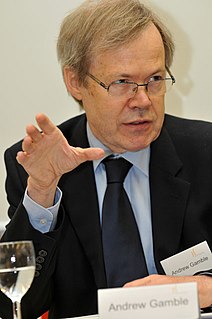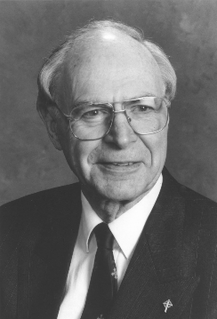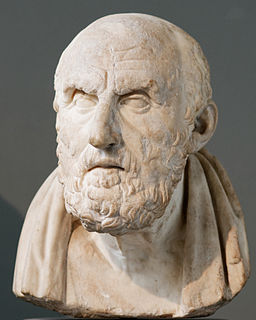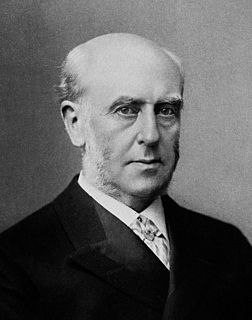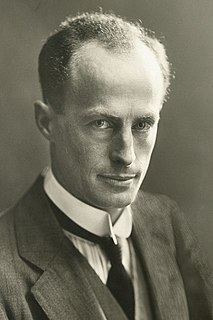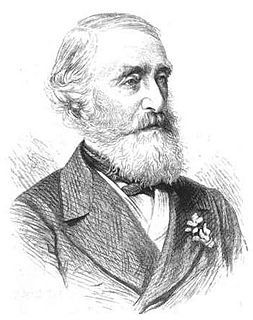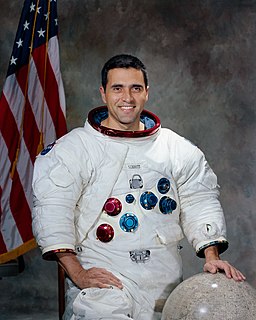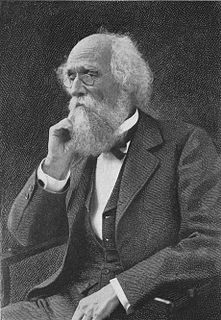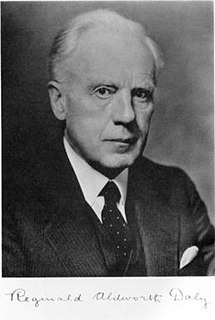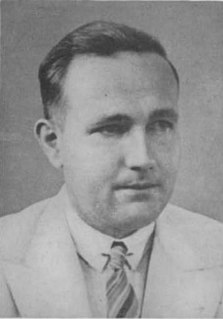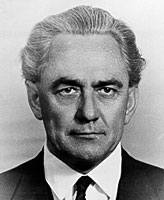A Quote by William Buckland
Geology has shared the fate of other infant sciences, in being for a while considered hostile to revealed religion; so like them, when fully understood, it will be found a potent and consistent auxiliary to it, exalting our conviction of the Power, and Wisdom, and Goodness of the Creator.
Related Quotes
Astronomy concerns itself with the whole of the visible universe, of which our earth forms but a relatively insignificant part; while Geology deals with that earth regarded as an individual. Astronomy is the oldest of the sciences, while Geology is one of the newest. But the two sciences have this in common, that to both are granted a magnificence of outlook, and an immensity of grasp denied to all the rest.
Our fate is something which exists outside ourselves, and which once revealed expresses the meaning of our lives. Apart, however, from soothsayers who claim to have a means of foretelling exactly what will befall us, this kind of fate is only normally revealed after a life has ended. Only then can the meaning of that life be understood.
While we contemplate in all creatures, as in a mirror, those immense riches of His wisdom, justice, goodness and power, we should not meerly run them over cursorily, and, so to speak, with a fleeting glance, but we should ponder them at length, turn them over in our mind seriously and faithfully and recollect them repeatedly.
There is a happiness in Deism, when rightly understood, that is not to be found inany other system of religion. All other systems have something in them that either shock our reason, or are repugnant to it, and man, if he thinks at all, must stifle his reason in order to force himself to believe them.
That religion, or the duty which we owe to our Creator, and the manner of discharging it, can be directed only by reason and conviction, not by force or violence; and therefore all men are equally entitled to the free exercise of religion, according to the dictates of the conscience; and it is the mutual duty of all to practice Christian forbearance, love, and charity towards each other.
While believing strongly, without evidence, is considered a mark of madness or stupidity in any other area of our lives, faith in God still holds immense prestige in our society. Religion is the one area of our discourse where it is considered noble to pretend to be certain about things no human being could possibly be certain about. It is telling that this aura of nobility extends only to those faiths that still have many subscribers. Anyone caught worshipping Poseidon, even at sea, will be thought insane.
Religion, or the duty we owe to our Creator, and manner of discharging it, can be directed only by reason and conviction, not by force or violence; and, therefore, that all men should enjoy the fullest toleration in the exercise of religion according to the dictates of conscience, unpunished and unrestrained by the magistrate, unless under color of religion any man disturb the peace, the happiness, or safety of society, and that it is the mutual duty of all to practice Christian forbearance, love and charity toward each other.
But while property is considered as the basis of the freedom of the American yeomanry, there are other auxiliary supports; among which is the information of the people. In no country, is education so general - in no country, have the body of the people such a knowledge of the rights of men and the principles of government. This knowledge, joined with a keen sense of liberty and a watchful jealousy, will guard our constitutions and awaken the people to an instantaneous resistance of encroachments.


